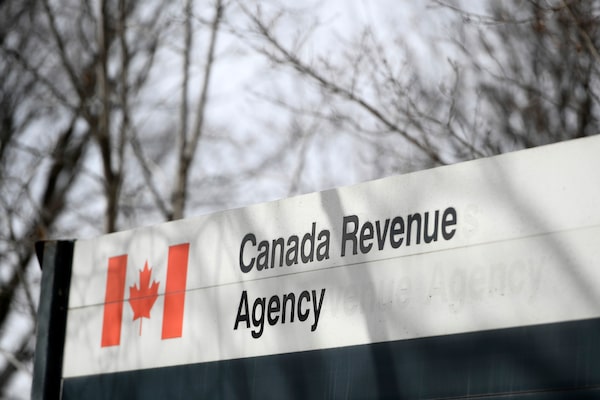
Canada Revenue Agency says those filing by paper should have also received their income tax package in the mail by now.Justin Tang/The Canadian Press
Tax filing season has officially kicked off as Monday marked the first day that Canadians can begin filing their income tax returns online.
The Canada Revenue Agency said those filing by paper should have also received their income tax package in the mail by now.
Most Canadians must file their tax return by April 30, which is also the deadline to make a payment for those who owe money to the CRA.
However, Canadians who are self-employed, along with their spouses or common-law partners, have until June 15. Since that day falls on a weekend, the CRA will consider a return to be on time if it is received by or postmarked on or before June 17.
Self-employed Canadians must still pay money owed to the CRA by the April 30 deadline to avoid paying interest.
Chartered Professional Accountants of Canada say there are a number of changes in store for the 2024 tax filing season.
CPA vice-president of taxation John Oakey wrote in a post on the organization’s website that the temporary flat rate method for claiming employees’ home office expenses, such as rent, electricity, internet and office supplies, is no longer available.
From 2020 to 2022, eligible employees could claim $2 for each day worked from home owing to the COVID-19 pandemic up to an annual maximum of $400 in 2020 and $500 in 2021 and 2022.
Employers were not required to complete and sign a T2200 form, nor were employees required to keep documents to support their claims.
For 2023 and future years, employees must now follow a more detailed method to make these claims, Mr. Oakey wrote.
He said other notable changes include taxpayers no longer having to apply for advance payments of the Canada Workers Benefit when they file their tax returns. Those payments are now issued automatically to those who were eligible to receive the benefit in the previous tax year.
Last April, rules governing the new First Home Savings Account program also came into force, meant to help Canadians save for their first home. Contributions to an FHSA are deductible and the income earned in an FHSA is not taxable.
Qualifying withdrawals from an FHSA to purchase a first home are also not taxable.
The program allows prospective homebuyers to start saving for up to 15 years once they open an account, with an annual $8,000 deposit cap and a lifetime contribution limit of $40,000.
Mr. Oakey also noted taxpayers can now claim the Multigenerational Home Renovation Tax Credit. It’s a refundable credit meant to assist with the cost of renovations that create a secondary unit for a senior or adult eligible for the disability tax credit.
The credit is available for up to $7,500 or 15 per cent of the costs of a qualifying renovation incurred after Dec. 31, 2022.
The CRA said it processed more than 18 million refunds for the 2022 tax year at an average of $2,262. Around 78 per cent of refunds were issued by direct deposit while the rest were sent by cheque.
The agency said those with a modest income and simple tax situation who need help filing their returns can speak with volunteers at a free tax clinic in their area, or make a virtual appointment. Details are available online through the CRA’s free tax clinics page.